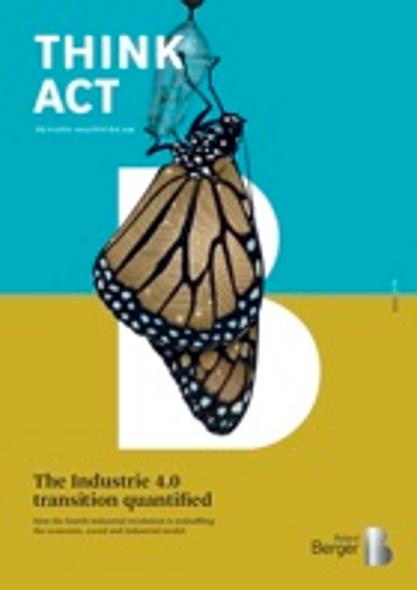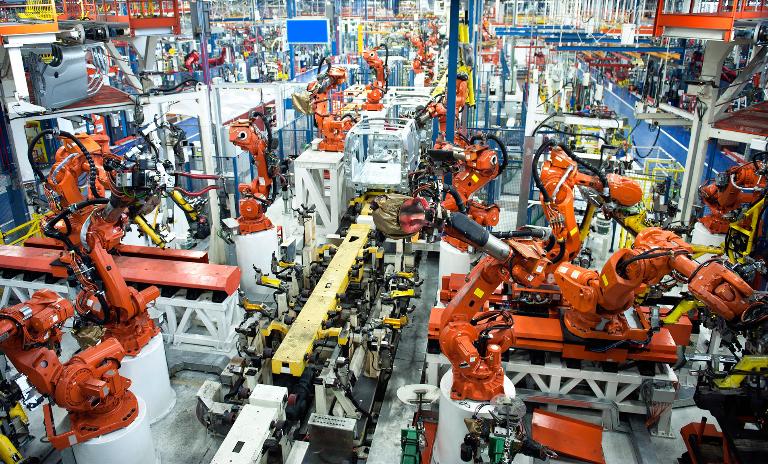The Industrie 4.0 transition quantified
![{[downloads[language].preview]}](https://www.rolandberger.com/publications/publication_image/rb_2_download_preview.jpg)
How the fourth industrial revolution is reshuffling the economic, social and industrial model


Factory virtualization, smart and intelligent machines, the IoT, the cyber production system, 3D technology, cobots, and more— Industry 4.0 will transform not just the industrial economic paradigm, but the value creating mechanisms that underpin it as well. Today’s industrial model is still based on the principle of decreasing product costs through the volume of products manufactured. However, this model is now being questioned because there is only so far it can go.
In the Industry 4.0 transition, industrial business can expect a +25 PPTS gross increase in ROCE through to 2035. A potential EUR 420 billon of capital employed and net profits will become available through its introduction in Western Europe. Industry 4.0 represents a shift to mass customization, based on flexible and localized production, dynamically adapting itself to demand. It is more predictive and auto-corrective, involving less trial and error. Its logic is focused not on the product but on usage, and it switches from a rigid form of labor organization to a flexible one.
We have developed an innovative approach to analyze the effects of Industry 4.0. In this publication, we have calculated the effects and detailed conclusions by using return on capital employed. We compare automation, obsolescence, and industry 4.0, using the results to lay out key takeaways on virtual factories, automated flows, smart machines, predictive maintenance, and the cyber-production system. In addition, we analyze development at firm and country levels, looking into deindustrialization internationally. We give detailed analysis on how countries including Germany, the United States, China, Japan, and South Korea have approached Industry 4.0, studying the effects it is having on their economic and social models.
We also provide detailed analysis on a most delicate issue: the impact Industry 4.0 will have on jobs. The study makes comparisons to traditional industry, providing extensive insight on why and how Industry 4.0 can set new growth and employment into motion. We observe where jobs are disappearing, being replaced, and where new ones are being created. There is an urgent, widespread need to gain a detailed understanding of this transformation, incorporate it, and plan ahead effectively, and in this publication we explain the positive net effect of Industry 4.0 on employment levels, output, and quality of life.
Please find our new study on the impact of Industry 4.0 by Max Blanchet ("Industrie 4.0 : la révolution qui vient", French version only), at amazon.com.

![{[downloads[language].preview]}](https://www.rolandberger.com/publications/publication_image/rb_2_download_preview.jpg)
How the fourth industrial revolution is reshuffling the economic, social and industrial model

